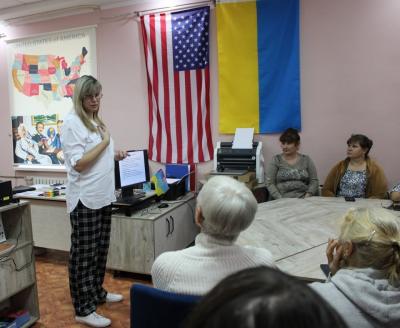Duke Ellington
Duke Ellington
Beyond Category 1899-1974
"America's most important composer , . . the greatest this American society has produced . . . master musician, master psychologist, master choreographer".
—Ralph J. Gleason,jazz critic and historian, New York Times, May 25, 1974
The highest praise that composer/orchestra leader Duke Ellington could bestow on anyone was to declare that person "beyond category." That phrase, however, perhaps best describes his own talent and contributions to music. Indeed, while the Duke is generally regarded historically as one of the greatest influences in the realm of jazz, he never liked to call the music he created "jazz."
Ellington did not differentiate between kinds of music. "There are just two kinds of music," he often said, "good and bad."
Edward Kennedy Ellington was born on April 29, 1899, in Washington, DC. Growing up, he earned the nickname "Duke" in recognition of his classy wardrobe, his refined speech, and his regal bearing—attributes that he carried throughout his life. When he "was about seven his mother started his piano lessons. His talent was immediately apparent, but like a typical boy, he yearned for more physically demanding endeavors. His love of baseball led him to his first job, selling peanuts at Washington Senators baseball games.
The ragtime pianists of the day first caught the young Ellington's attention, and he began playing local gigs, imitating his ragtime idols. Later, from listening to such masters as Fats Waller and James P.Johnson, he would develop the "stride" jazz piano technique popular in Harlem. By the time he was seventeen, while working at an ice cream counter, he had composed his first song, "Soda Fountain Rag." From that modest beginning, Duke Ellington in his lifetime would compose or co-compose more than 1,500 musical pieces.
In 1918 the Duke married Edna Thompson and they had one son, Mercer, who in 1965 joined his father's band as trumpeter and manager. The couple divorced in 1930.
It was not long after his marriage to Edna that the lure of New York City beckoned the Duke. With him went his drummer Sonny Greer, who had joined Ellington in 1919 and would stay until 1950. It began a pattern of highly talented sidemen who would remain with the Duke for extended periods, some for virtually their entire careers. Thus he built an orchestra for which he could create compositions based on the talent of his instrumentalists.
The going was tough at first in New York, but Ellington was encouraged by Fats Waller, and in 1923 the Washingtonians with Ellington were hired by the Hollywood Club (later the Kentucky Club), where they performed for over four years. During that period Ellington began his recording career with his composition "Choo Choo," featuring the hot, growling trumpet of Bubber Miley.That sound would become an Ellington signature.
Ellington thrived at the Kentucky Club, but in 1927 the band had its big break: the Duke was hired to replace King Oliver at the famed Cotton Club. Once the Duke's ten-piece group took the bandstand, it remained for the next four years. The Cotton Club was the top Harlem nightclub in New York, presenting flashy, colorful floor shows backed by the best jazz bands. While all the performers were black, the patronage of the expensive club was almost entirely white, often members of New York's high society.
Ellington's recording output also increased as a result of his Cotton Club fame. He recorded "East St. Louis Toodle-oo," "Black and Tan Fantasy," and "Creole Love Call," representing his distinctive style, which was further developed in "The Mooche,""Ring Dem Bells,""Mood Indigo," and "Rockin' in Rhythm." Adding to the Duke's credits was his first movie appearance in 1929, beginning a long association with film that included composing the score for Otto Preminger's classic, “Anatomy of a Murder” (1959).
The band stayed at the Cotton Club until the early 1930s. By then Ellington's reputation was established, and his troupe began playing one-nighters across the country. In 1933 he embarked on a European tour, the first of many overseas trips. In Europe Ellington received high critical acclaim, one London critic comparing his music to that of the respected British composer, Frederick Delius.
Back in the United States the swing movement was building steam, and by the mid-1930s the big name swing bands were taking over the musical firmament. The Duke blended into the new craze, writing and playing ballads and swing dance numbers. It was during this period that he wrote some his most enduring compositions, such as "Sophisticated Lady," "I Let a Song Go Out of My Heart," and the haunting "Caravan." It was also a time when he began to compose longer pieces including Reminiscing in Tempo and Diminuendo and Crescendo in Blue.
Ellington continued to build the personnel of his orchestra, and between the time he left the Cotton Club and 1940 he added such sidemen as cornetist Rex Stewart, trombonist Lawrence Brown, bassist Jimmy Blanton, and tenor saxophonist Ben Webster. Among the vocalists who would sing with the band were Ivie Anderson, Kay Davis, Herb Jeffries, and Al Hibbler. He was also joined in 1939 by Billy Strayhorn, who became an integral part of the orchestra as Duke's co-composer and co-arranger. It was Strayhorn who composed the Duke's theme song, "Take the 'A'Train.
The death of Billy Strayhorn in 1967 was a severe blow to Ellington. Strayhorn had become a virtual extension of Ellington himself, and the Duke grieved at length over his loss. Helping Ellington to rebound in 1969 was a commission from the African country of Togo, resulting in the Togo Brava Suite. That same year he was honored on his seventieth birthday by a concert and ceremony at the White House, during which President Richard M. Nixon presented him with the Presidential Medal of Freedom. The music by an all-star group was recorded live, but was not released until 2002.
Ellington kept working to within two months of the end of his life, despite a long struggle with lung cancer. Before his death he managed to complete an autobiographical memoir, aptly called “Music Is My Mistress”. His "mistress," he often said, "plays second fiddle to no one." When he died, on May 24,1974, he left behind an unfinished opera, “Queenie Pie”.
Some of the more notable honors bestowed on Duke Ellington during his lifetime include, in addition to the Medal of Freedom, the Legion of Honor (France), President's Gold Medal (President Lyndon Johnson), and the Springarn Medal (NAACP). Honorary doctorates in music were awarded by Yale University, Brown University, the University of Wisconsin, and others. He held memberships in such institutions as the Royal Swedish Academy of Music and the American Academy of Arts and Sciences.
When the Pulitzer Prize advisory board rejected Ellington, then sixty-six, for a special prize in 1965 he only commented, "Fate doesn't want me to be famous too young." There was much criticism over that decision, and the award was bestowed posthumously in 1999, at the centennial of his birth.
More detailed information can be found in the "Extraordinary People in Jazz" M.Marvin, and issued by The Scholastic Inc. in the USA, where over 254 persons are listed.
Information should be used just for educational purposes.










